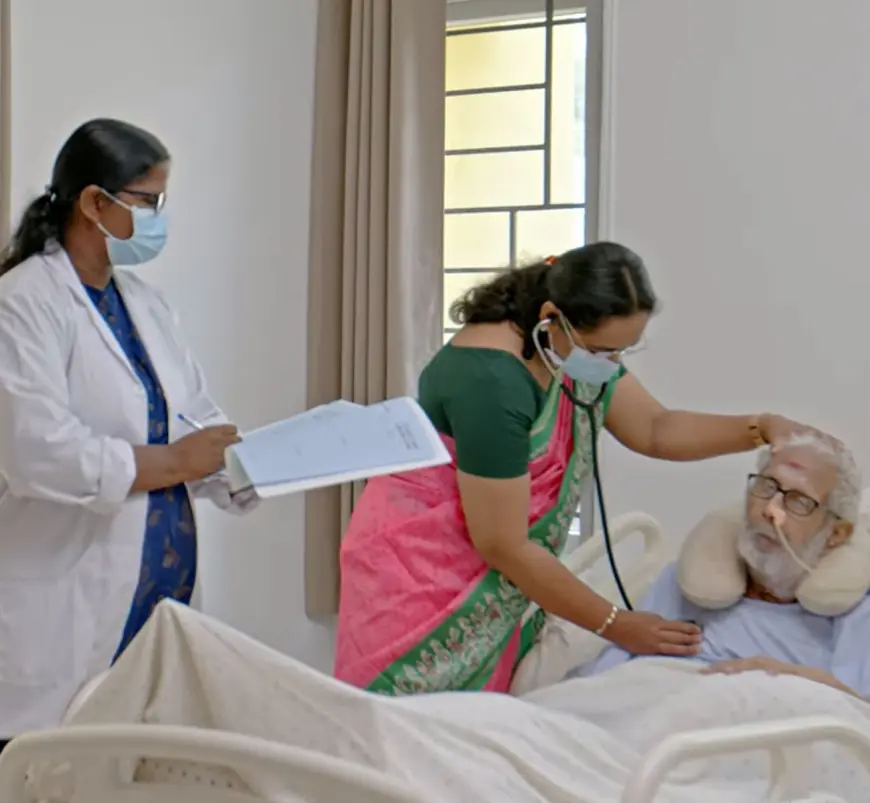The Future of Transitional Care in Chennai: Innovations and Best Practices
In this blog, we’ll explore how transitional care in Chennai is evolving and what the future holds for patients, families, and healthcare providers.

As healthcare systems around the world continue to evolve, transitional care in Chennai is also undergoing significant transformation. With a focus on improving patient outcomes and enhancing the recovery process, the future of transitional care in Chennai promises to integrate cutting-edge technology, new best practices, and patient-centered care models.
The Role of Technology in Shaping the Future of Transitional Care
Technology is playing an increasingly vital role in enhancing transitional care, offering new solutions to common challenges faced by patients and caregivers. Some of the key innovations include:
-
Telemedicine and Virtual Care
Telemedicine has already revolutionized post-hospitalization care, and its importance will continue to grow in the future. In Chennai, virtual consultations allow patients to connect with their healthcare providers without having to leave home. These consultations make it easier for patients to receive timely follow-up care, ask questions about their recovery, and adjust treatment plans as needed. This technology also ensures that patients in remote or underserved areas have access to transitional care services. -
Wearable Health Devices
Wearable devices are becoming increasingly popular for continuous health monitoring. These devices can track vital signs such as heart rate, blood pressure, and oxygen levels, providing real-time data to both patients and healthcare providers. In the future, these devices will become even more sophisticated, offering predictive analytics to detect early signs of complications and preventing hospital readmissions. -
Artificial Intelligence (AI) and Predictive Analytics
AI is being incorporated into transitional care programs to predict patient outcomes and identify risks before they become critical. For instance, AI algorithms can analyze patient data to flag issues such as medication adherence or signs of infection. In Chennai, healthcare providers are exploring ways to integrate these tools to improve decision-making and prevent complications. -
Mobile Health Apps
In the future, mobile health applications will serve as a one-stop hub for managing recovery. These apps will allow patients to schedule appointments, receive medication reminders, track physical activity, and communicate directly with care teams. With the growing popularity of smartphones, these apps will make transitional care more accessible, efficient, and patient-friendly.
Best Practices in Transitional Care for the Future
As the healthcare landscape shifts, best practices in transitional care will evolve to meet the changing needs of patients. The future of transitional care in Chennai will prioritize:
-
Personalized, Patient-Centered Care
Personalization is key to the future of transitional care. Every patient is different, and care plans must be tailored to their specific needs, whether that involves chronic disease management, post-surgical recovery, or rehabilitation. In the future, transitional care providers in Chennai will use more data to create personalized recovery plans, integrating both medical and lifestyle factors. -
Collaboration Across Healthcare Providers
A multidisciplinary approach will be even more important in the future. Doctors, nurses, physiotherapists, dietitians, and mental health professionals will work together to ensure that patients receive holistic care. This collaboration ensures that no aspect of a patient’s recovery is overlooked, resulting in better health outcomes and higher patient satisfaction. -
Emphasis on Preventive Care
Preventing complications before they arise will be a core principle in future transitional care. As more data becomes available through technology and monitoring, healthcare providers in Chennai will be able to anticipate potential issues, such as medication errors, missed appointments, or declines in mobility. Preventive care initiatives will empower patients to take control of their health, leading to better long-term outcomes. -
Increased Involvement of Family and Caregivers
Families and caregivers are critical to the success of transitional care, and in the future, they will play an even more active role. With advancements in communication tools and educational resources, caregivers will receive ongoing support and guidance. This will reduce the stress on families and ensure that they have the tools and knowledge to help patients recover.
The Importance of Data and Analytics
Data will be at the heart of future transitional care models. By collecting and analyzing patient data throughout the recovery process, healthcare providers in Chennai will be able to identify trends, measure recovery progress, and make more informed decisions. Real-time data will enable quicker responses to any issues that arise, while predictive analytics will allow for more effective management of complex cases.
The Growth of Specialized Transitional Care Services
As the healthcare needs of Chennai’s population become more diverse, specialized transitional care services will become more prevalent. These services will be tailored to specific patient groups, such as:
-
Elderly Care
With an aging population, transitional care for elderly patients will focus on managing multiple chronic conditions, ensuring medication adherence, and supporting physical and mental health. -
Post-Surgical Rehabilitation
Patients recovering from surgery will benefit from personalized rehabilitation plans that include in-home care, physiotherapy, and mobility support. -
Chronic Disease Management
For patients with conditions like diabetes, heart disease, or respiratory issues, transitional care will help manage long-term health needs, prevent hospital readmissions, and improve quality of life. -
Palliative and End-of-Life Care
Transitional care will also expand to support patients with serious illnesses who are transitioning to palliative or hospice care. This will ensure that these patients receive compassionate, high-quality care during the final stages of life.
Conclusion
The future of transitional care in Chennai is bright, with ongoing innovations and best practices that promise to enhance the patient experience and improve recovery outcomes. By incorporating technology, personalization, and a multidisciplinary approach, transitional care will continue to evolve to meet the needs of an ever-changing healthcare landscape. As these advances take root, patients and families in Chennai can look forward to a more effective, efficient, and supportive recovery journey.












